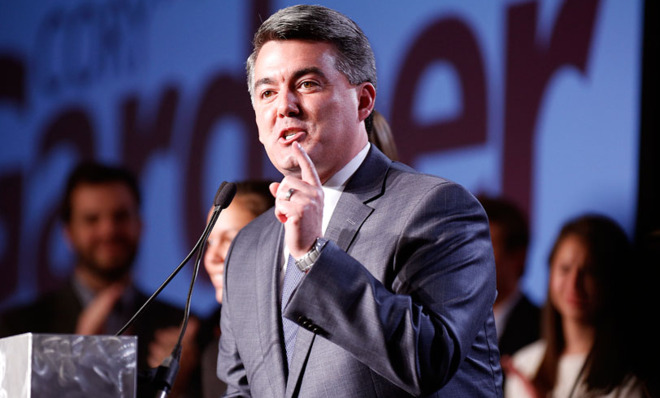The GOP got way better at campaigning — and Democrats should be very afraid
The Republican Party got a lot right in the 2014 midterms, lessons that might come handy in 2016


A free daily email with the biggest news stories of the day – and the best features from TheWeek.com
You are now subscribed
Your newsletter sign-up was successful
Does the Republican smash success of 2014 portend similar results in 2016?
At first blush it doesn't seem so. The "fundamentals" will not be the same. President Obama won't be there to kick around anymore, so Republicans cannot rely on his unpopularity. The electorate will be not be as white or as old. Unless Hillary Clinton absents herself and a world-historically inept candidate (Wendy Davis?) carries the D brand, you can't expect states like Maine, Massachusetts, Maryland, Illinois, or even North Carolina to be as friendly to Republicans come the next election cycle.
But Republicans have not been given credit where it is due. And they have plenty to learn from their victories.
The Week
Escape your echo chamber. Get the facts behind the news, plus analysis from multiple perspectives.

Sign up for The Week's Free Newsletters
From our morning news briefing to a weekly Good News Newsletter, get the best of The Week delivered directly to your inbox.
From our morning news briefing to a weekly Good News Newsletter, get the best of The Week delivered directly to your inbox.
The first is candidate selection. The calming of the Tea Party populist squall may have played a role in attracting a better kind of candidate in 2014. But "recruit stars" is easy advice to give and hard to follow. In Cory Gardner, who defeated Mark Udall in a very purple Colorado, the GOP seems to have found such a star. Although he has a very conservative record by national standards, his handling of Udall's culture-war fear-mongering was deft. He easily turned questions about social issues into answers about economic issues or Obama's record.
Some commentators are crowing that demographics still doom the GOP. But this year Republicans were determined to expand their support beyond the base, and they were rewarded for their efforts. Look no further than Gregg Abbott, the gubernatorial candidate in Texas, who reversed the GOP's decline among Latino voters in the Lone Star State. He made many campaign stops in the Rio Grande, and he didn't shy away from using identity politics, noting that his own family looked a bit like Texas: a mix of Latino and Anglo. "My multicultural family has played a role in our ability to connect with the Rio Grande Valley," he told the local press in the run-up to Election day.
Overall, Republicans did much better among minority voters. Two years ago, Republicans got 6 percent of the black vote, 27 percent of the Latino vote, and 25 percent of the Asian vote. In 2014 they carried 10 percent of black vote, 36 percent of the Latino vote, and 50 percent of the Asian vote.
In the long run, no, the Republicans cannot "make it up in volume" as the share of minority voters grows. But the rehabilitation of the party's image with minority voters may happen sooner than expected. The GOP did better in 2014 than in 2010, and this year's electorate was less white and less ideologically conservative than the one four years earlier.
A free daily email with the biggest news stories of the day – and the best features from TheWeek.com
Finally, the party at an intuitive level seems to have learned that tantrums are not enough to defeat Democrats. It is typical for parties to grow hungrier for power, and more willing to reach out to the center when their opponent has won two White House terms. Recall the way George W. Bush crafted the non-Gingrichian identity of a "compassionate conservative" in 2000. With some notable exceptions, Republicans showed signs of doing that in this election.
Instead of letting Rush Limbaugh stand in for them, GOP candidates neutralized hot-button issues. Gardner, for example, proposed legislation to make contraception available over-the-counter, as a way of assuring voters who might be turned off by his support of Hobby Lobby or other religious liberty objectors to mandatory contraception coverage. These little tweaks allow Republicans to campaign for a broader liberty not just for their own constituencies, but for the muddled middle, too.
That's the playbook. Find candidates that attract voters, not just attention and media. Don't just rely on your base, but campaign for voters that are soft on the other party. Go easy on your ideology, and find policies that both draw on your base convictions and deliver a win for swing voters.
It's a start.
Michael Brendan Dougherty is senior correspondent at TheWeek.com. He is the founder and editor of The Slurve, a newsletter about baseball. His work has appeared in The New York Times Magazine, ESPN Magazine, Slate and The American Conservative.
